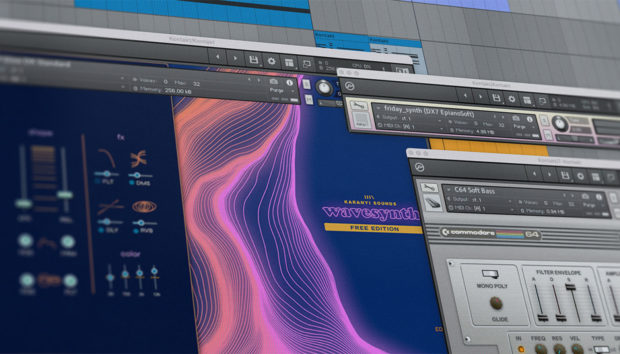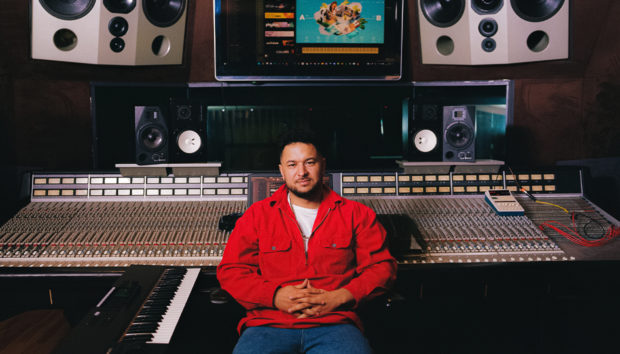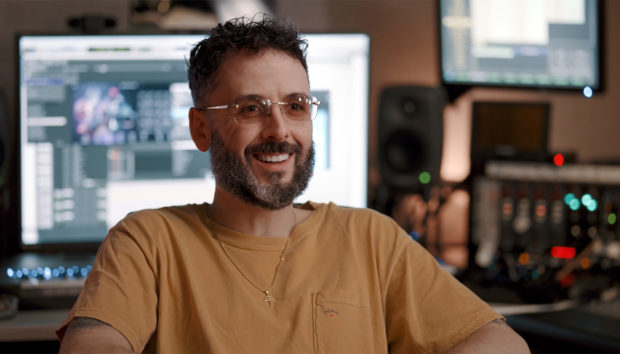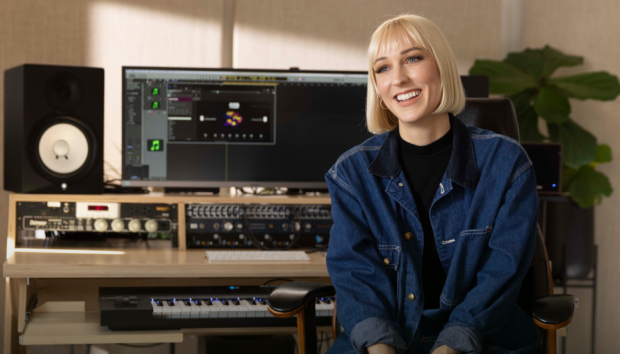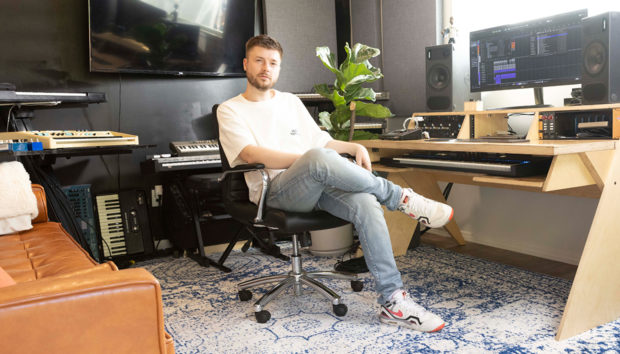“…And then first thing they say is go buy a plant for Herbie Hancock!”
Peter Wade, Grammy winning producer, writer, engineer, mixer, and label owner is recounting his first morning working in the music industry. Several decades ago now, he woke up on a friends’ couch to a phone call from Sony, asking him to come in right away and be a runner.
“And I’m like, what do you mean? They’re like ‘figure it out’. And I bought a plant. Apparently he liked it. It died a month later,” Peter laughs. “But he liked it for the short period of time that it was there. And that was the beginning of my career.”
Knowing which plant to buy for a jazz legend is not the first thing mentioned in most guides to making it in the music industry. It may lack the ‘wow’ of a creative breakthrough or the practical illumination of a good technical tutorial, but tuning into this extra horticultural dimension is a clue to the soft skills that have helped Wade climb to where he is now.
“I picked the right plant,” he laughs. Peter Wade may not be a household name, but you’ve likely heard plenty of things he’s worked on. Over a twenty-year career, he’s produced a roll-call of A-Listers from Jennifer Lopez and Kid Ink to Mark Ronson and Tory Lanez, written for Kylie Minogue, Sean Paul and Charlie XCX, and more recently his label, WonderSound Records, has put out music by Brooke Candy and Mykki Blanco. Then there’s the boutique publishing house 120 Music, which frequently places cuts with TV and brands across the world. Somewhere within all this, there’s the exhilarating electro-pop rush of his long term work with Amanda Lucille Warner’s MNDR project. For someone with such a pedigree, he’s unusually pragmatic in summing up his skillset.
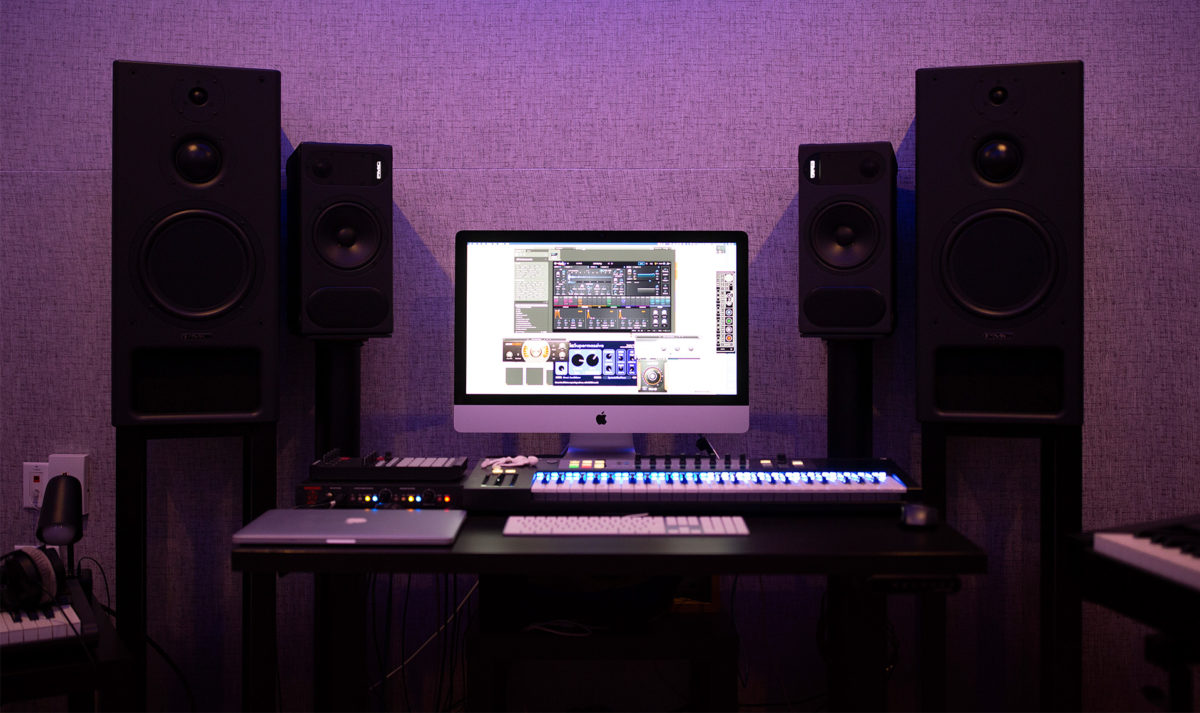
“I’ve never been a great musician,” he confesses. “Am I a songwriter? I don’t really consider myself a songwriter, though I’ve written lots of songs and it’s been awesome to have my songs cut on huge artists from Jennifer Lopez to Martin Solveig to Phantogram, but my musical talents are almost the least of my skills.”
It’s 8.30AM in LA and the Zoom screen frames Wade in a small studio that could double as a spare room. He has bed hair and bags under his eyes, I briefly wonder if this is because it’s early in the morning or rather just the regular appearance of a prolific music biz veteran who favors the grind over the glitz. You won’t see him Instagramming his lunch or miming a filter sweep as “that synth guy” in videos of any of the mega tunes he’s worked on. Try googling Peter Wade – his online presence is so low that you could be forgiven for thinking he spends any spare hours he has left over removing mentions of his name from the internet. Yet this self-effacing attitude belies a serious work ethic that upends the perception of talent being the one thing you need to take you to the top.
“You can be a really talented musician, be a great hang, or have incredible hustle and finishing skills. You sort of need to have two out of these three qualities,” Wade says. “I’m a pretty good hang, I’m pretty funny, I got hustle and I’m detail oriented. So a lot of my friends who are incredibly talented musicians have the detail of mastering an instrument, but maybe they’re not as good at finishing. I actually finish stuff.”
Wade explains the importance of setting aside your own agenda in order to get the best result for who you’re working for: “As a record producer, it’s not about you, it’s about the artist you’re producing, helping them realize their vision and be the best them that they could be,” he says. “It’s about being a team player.”

It’s this attitude which has carried him from finding that right plant for Herbie Hancock to being part of three Grammy winning LPs for Latin star Marc Anthony. Wade’s career journey debunks the myth that musical talent alone will get you noticed. It’s a journey made up of long, long days where often the biggest take-out is the importance of observing, listening, and fetching, all the while setting goals and working towards them. I ask him if there was an early ‘wow’ moment for him.
“I’ve always been a technical math kind of guy, I wanted to be an engineer.” Says Peter, casting his mind back to an early musical epiphany back in the nineties, growing up in the New Jersey suburb of Teaneck.
“There was a bunch of Jamaican kids who’d hang out after school. And they were listening to music like Super Cat and Shabba Ranks and I was like ‘this music is fucking cool, what is this? It was the rawest music I’ve ever heard’. I started buying dancehall records, anything that I could get my hands on, never thinking I would be in the music business. Collecting records led to DJing which led to touring and eventually producing bands in my community.”

Wade got his hands on a cassette 4-track and started producing his friends’ bands, all the while obsessively collecting records and DJing. A little time passes before we get to that day in 1998, that call out of the blue from Sony (over a year after he’d interviewed for the position), that day Herbie Hancock wanted a plant. But it wasn’t just his green thumb that got him noticed.
“I was really good at getting coffee,” Wade reveals. “I took getting coffee as seriously as I take everything, I always got the sugars and the creams correct, and knew who ordered what, and that level of detail let them know ‘Oh hey, maybe this guy can get mics and wires and carry other heavy stuff and isn’t going to drop it or drop the ball.’ Over time my attention to detail got me the recognition of being a really good studio assistant.”
“I worked my butt off twenty hours a day every day for years as an assistant and then a Protools engineer and eventually an engineer and a vocal engineer,” he goes on to say. “I set goals for myself in terms of saying: I want to get a credit on a number one record as an assistant, I took it seriously and I finally got it. Then, it would be awesome to get an engineering credit on a really big record. And I finally got that and then I started mixing and thought next it’d be awesome to have a number one. What was the first one?”
Wade pauses momentarily in the way you might briefly forget why you’ve opened the fridge. Suddenly he remembers: “Oh yeah, actually it was Jenny From The Block.”

Talking about the qualities you need to get ahead in the music industry with Wade is humorous and insightful. He stresses the importance of, as he says: “reading fucking manuals and paying attention to details and watching and learning. You have to know when to talk and when not to talk. If you’re working in a studio and you’re a runner or an assistant, just shut your mouth, no one wants your opinion. Even if they asked, you have to figure out a clever way to not really give it cause they don’t really want your opinion.”
This strategy may seem harsh, but it paid off when the pioneering producer/mixer, Tony Maserati, at the time making a name on the 90s New York hip hop scene with artists like Mary J Blige and The Notorious BIG noticed the studious young Wade.
“Maserati says ‘there’s two chairs, why don’t you sit in this chair? I’ll sit in that chair, I’ll show you how to mix and in return, carry this gear, send these packages, whatever it might be, go to my house and pick up my dry cleaning’” Wade says. “I’ll do anything, you know? Someone noticed that I actually was good at this job.”
I have to ask, for all this dedication, hasn’t the prospect of fame ever appealed to him?
“I worked with Jennifer Lopez for many years and we once had to hide her under a blanket in the backseat of my car to avoid paparazzi.” He shrugs. “I’ve worked with lots of famous people and I’ve seen what it’s like, it just doesn’t look like fun to me.”
Eschewing fame, it’s the soft skills of going that extra mile, putting in long hours and focussing on what he’s good at that has nurtured a career for Wade simultaneously low-key yet prolifically firing out success after success. So, do you want to sit around and wait for cosmic alignment or do you want to go pick a plant for Mr Hancock?













